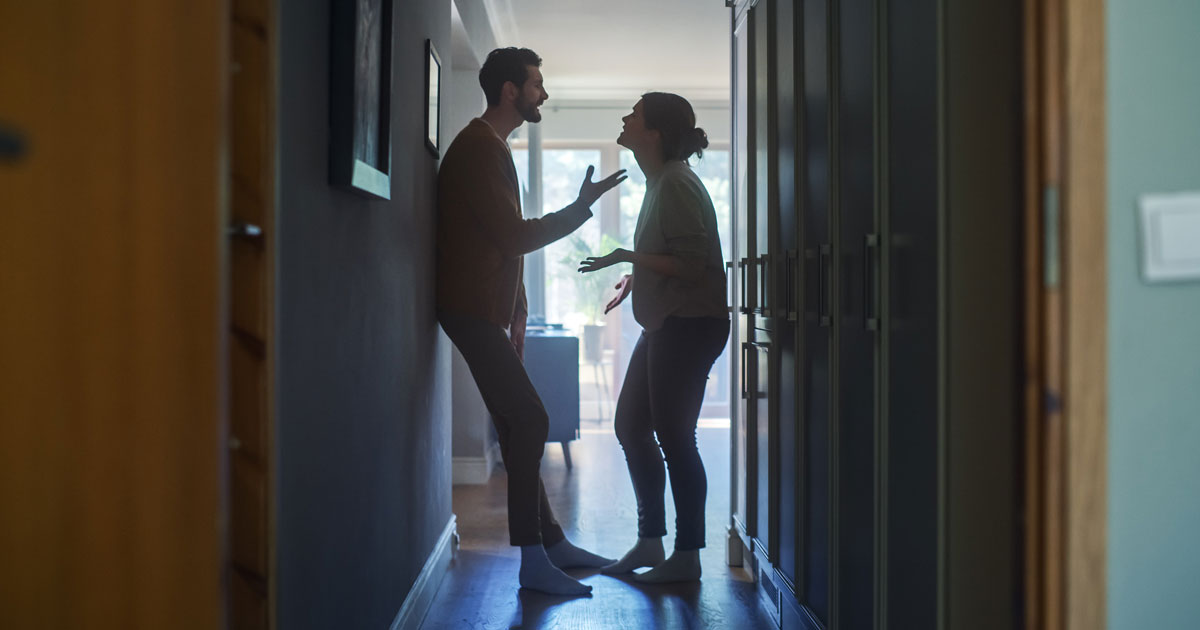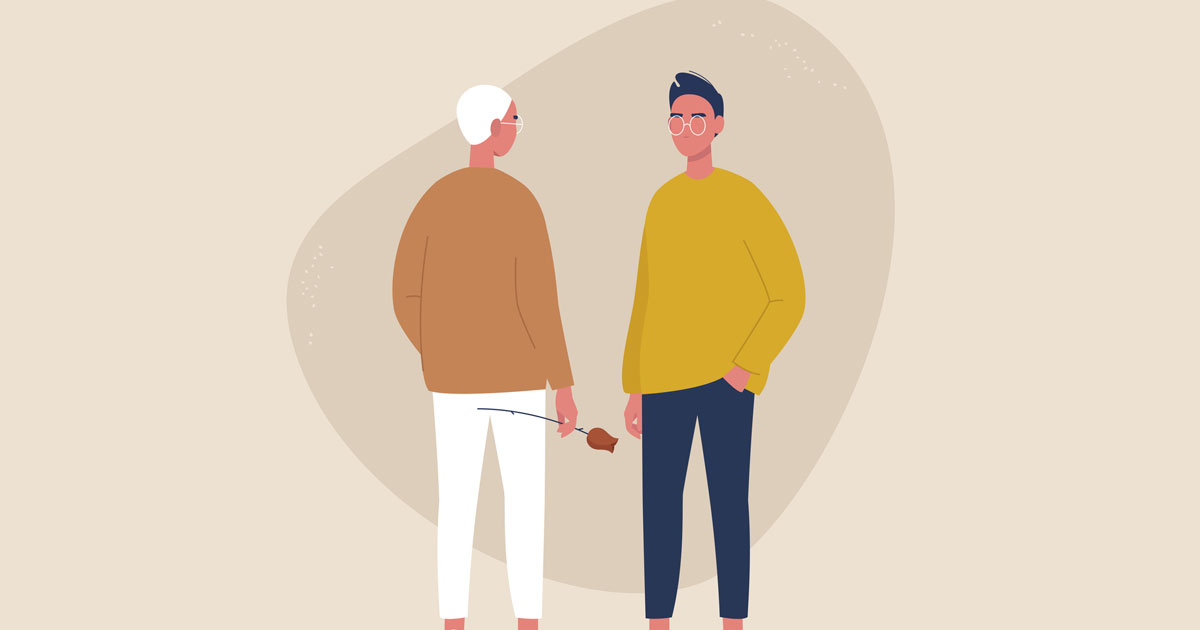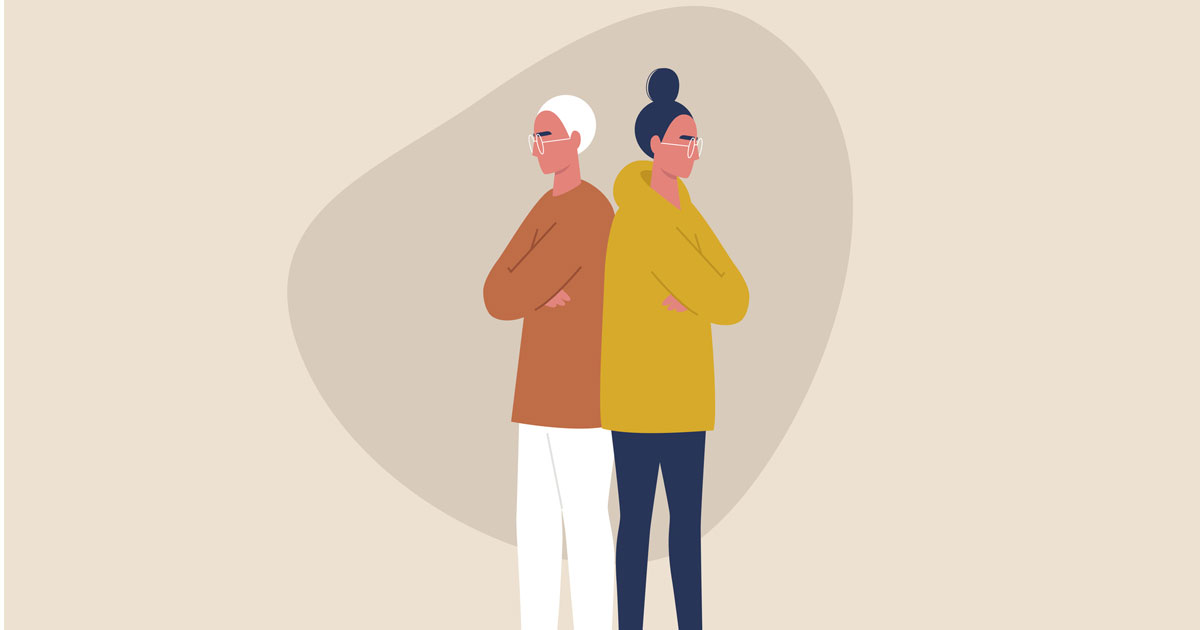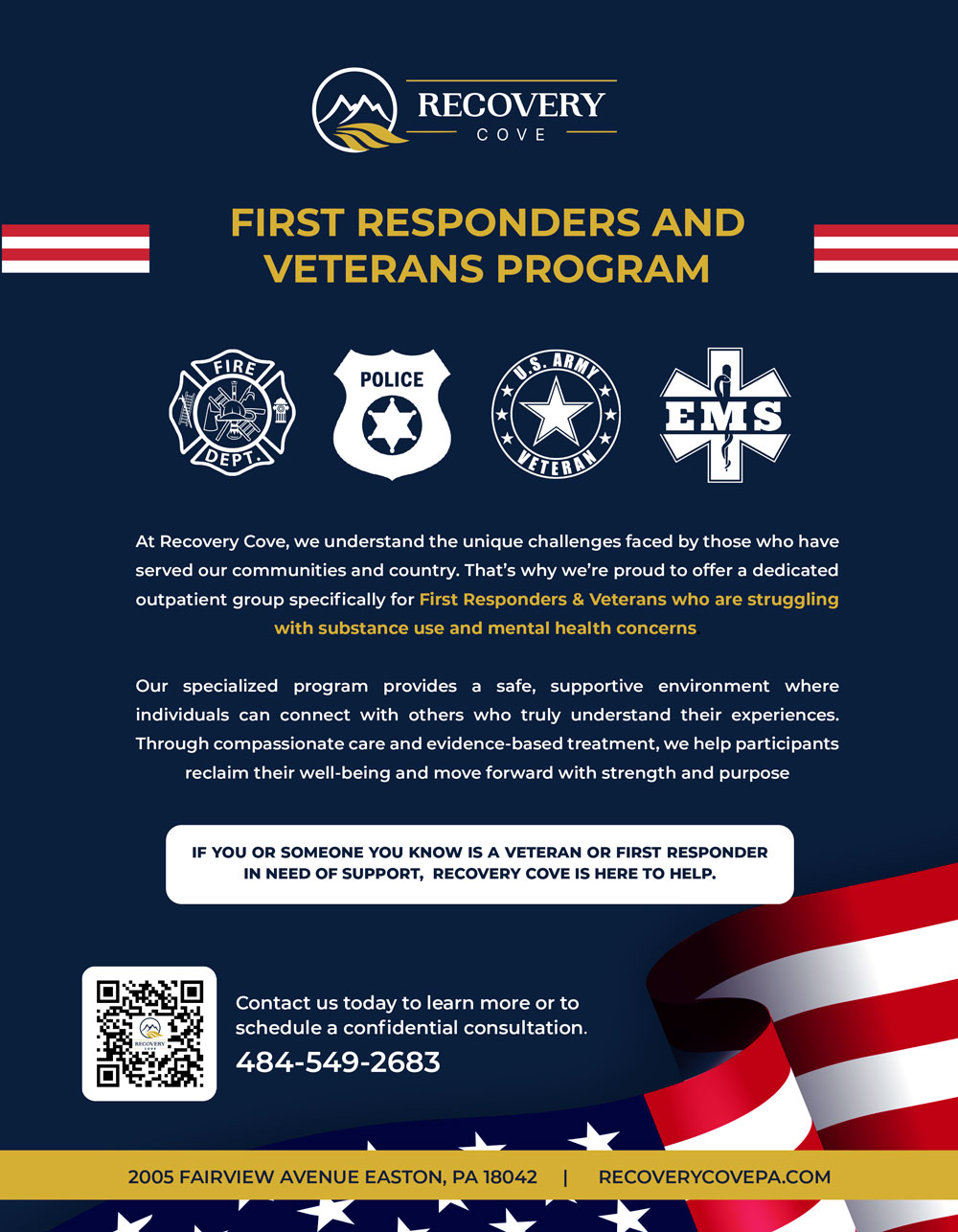Dealing with addiction is an all-consuming issue that bleeds into every aspect of your life. It can change your mental and physical well-being, alter your personality, and even diminish your ambition to live your life. It is not unrealistic to assume it will affect the people around you, including the relationships in your life.
The behaviors and side effects associated with addiction will damage these relationships, as it creates circumstances for toxic relationships to form. Though addiction does not always create toxic relationships, it is a significant contributor. Conversely, toxic relationships can become contributors to prolonging addiction.
What Are Toxic Relationships?
A toxic relationship can be any type of relationship, whether with a parent, child, friend, partner, or spouse, that causes harm to one or both people involved. Toxic relationships do not improve the participants’ well-being—instead, these relationships include negative patterns that make you feel unsupported, demeaned, misunderstood, or attacked. Selfishness, manipulation, control, and abuse are also commonly found in these damaging relationships. Toxic relationships often result when one of the people involved lacks empathy for the other. Unfortunately, lacking empathy is more likely when that person is struggling with addiction.
It is important to note that the person struggling with addiction is not always the toxic person in the relationship. Those with substance abuse issues are also more likely to experience abuse themselves, as abusive partners may use shame and low self-worth to manipulate and control addicted individuals. Toxic partners may also take advantage of lowered inhibitions or times when the individual is incapacitated from the substance abuse, resulting in unwanted sexual advances or rape. Guilt from the addiction may force a person into believing they deserve the mistreatment in their relationship, so they choose not to leave.
Signs of a Toxic Relationship

Toxic relationships and drug addiction are frequently paired, as poor relationships can stem from substance abuse. However, not all relationships that involve individuals struggling with addiction issues are toxic, so it’s important to recognize the signs.
- Unchecked Jealousy— Trust is vital for a healthy relationship, so uncontrolled jealousy from your partner will bring about suspicion and mistrust.
- Isolation— If you’re being made to choose between your partner or other loved ones, they may be attempting to separate you from a support system.
- Aggression— Some substances can cause an increase in irritability and the likelihood of violence. Not being able to regulate emotions to guarantee your safety is a major red flag for the relationship.
- Manipulation— You should be free to be yourself in your relationship. If a partner tries to exert control over your emotions, actions, or decisions, you cannot be comfortable in the relationship.
- Ignored Boundaries— It is healthy to have boundaries within a relationship, so your partner constantly crossing your boundaries for their own needs is toxic behavior.
- Dismissal—If your partner is dismissing or belittling you, your mental health will struggle. This sign may develop into more severe types of emotional abuse like gaslighting.
- Physical/Sexual Abuse— Your body is your own and any trespass against that is abuse. These actions always denote a toxic partner.
- Feeling Unsafe— Constantly feeling on-edge and unsafe can cause significant, negative stress responses in the brain that can affect the body as a whole.
This is not a comprehensive list, and it is important to remember that signs of a toxic relationship could fill several blog posts on their own. However, this list provides a starting point to help you think about your relationship and evaluate it more objectively. Ultimately, any concerns about your relationship should be paired with critical consideration for your mental and physical safety. Simply asking the question “what does toxic in a relationship mean?” should be an indicator that you need to take a serious look at your relationship and evaluate how healthy it is for you.
The Link Between Toxic Relationships and Addiction
People experiencing substance addiction are likely to find themselves in toxic relationships. The two are frequently paired and can also make each worse. In fact, research shows that upwards of 40% of intimate partner abuse cases may co-occur with substance abuse. Intimate partner abuse involves sexual/physical violence, stalking, or psychological abuse from a close partner. Almost 23% of all intimate partner violence perpetrators claimed to have alcohol abuse disorder. The partner with the addiction issues may even coerce their partner into using their substance of abuse.
Toxic relationships can form because of addiction. A person that becomes addicted to a substance of abuse will experience a change in their relationships, often creating toxic environments. Similarly, addiction can form because of toxic relationships. It is common for addiction to stem from substance abuse initiated to cope with unhealed trauma. This trauma could be what led them into the abusive relationship or could be a result of the abusive relationship. Further, mental illnesses are frequent comorbidities in substance abuse cases.
This information is unsurprising to anyone that has experienced these issues. Two main relationship styles are tied to the cycle of addiction: enabling and insecure attachment style.
Enabling
Caring for someone and wanting to help them defeat substance use can easily result in attempts to help that, unfortunately, turn into tolerating and assisting the addiction. Though enabling can be as obvious as providing the substance to the addicted person, it could be as subtle as giving emotional support or housing.
Insecure Attachment Style
This is a broad term that encompasses any attachment style other than secure attachment style, the style found in healthy individuals with the ability to regulate their emotions and ability to seek emotional support. Those with insecure attachment styles are more likely to experience addiction and toxic relationships.
Toxic Relationships Can Resemble Addiction
Both addiction and toxic relationships are harmful cycles defined by a negative relationship with either another person or a substance. These negative cycles can be difficult to identify and even harder to escape. The highs and lows of both circumstances leave the affected person reeling from the desire and rejection. Lying, manipulation, and physical/emotional abuse are characteristics of both issues. In a toxic relationship, the other person may not want you to succeed in sobriety due to their own agenda. For example, they may rely on your continued low self-worth, so they are more easily able to manipulate you. They may also have an unhealthy desire to care for and be needed by you, two things that may be alleviated if you continue with sobriety.
Unfortunately, toxic relationships and addiction can become even more intertwined. Many people ask themselves, “can a person be addicted to toxic relationships?” Toxic relationships meet the definition of addiction, as engaging in the relationship changes your mood and stimulates your brain’s reward system, but it’s difficult to stop even if you know the negative consequences affecting you.
People may crave the validation and fulfillment that comes with a relationship, even though the relationship is unhealthy. Further, the other person in the toxic relationship may be very skilled at making it feel like they care and love you, but only in controlled doses. These controlled doses of love are the high the person chases, instead of a high from a substance. How to stop being addicted to toxic relationships is a complicated question that requires the same amount of care as addiction to a substance.
As mentioned, codependency is a primary type of dysfunctional relationship found between people struggling with someone’s substance abuse. The supporting person enables another person’s addiction, whether intentionally or unintentionally, in an effort to save them from themselves. The enabling person becomes addicted to doing everything in their power to meet the needs of the other person without getting any of their needs met in return.
They may feel guilty if they take the time for self-care and are anxious when not “helping” the addicted individual. Unfortunately, this help is not really helpful at all, but instead hinders the person experiencing addiction issues by allowing them space to ignore their issues and refuse help to get healthy.
Evaluate Your Relationship

So, you’ve identified that your relationship may not be healthy, and you have concerns about how to proceed. Only you can decide how to best manage the relationship, but some important questions can help you decide whether to stay or leave.
- On a regular basis, am I happy or upset with them?
- Am I insecure if they’re not around? Do I require their validation?
- Do I gain anything from this relationship? Are my needs being met?
- Do their actions bring disruption or peace to my life?
- Do we both recognize our shortcomings? Do we have a plan to manage these shortcomings to be better people both within this relationship and outside of it?
- Do I feel manipulated, belittled, or dismissed frequently while with this person?
- Why am I staying in this relationship? Am I here because it’s comfortable or because it offers benefits?
- Is this relationship worth saving?
Next Steps
These questions are tools to evaluate your future with the relationship. They should be evaluated as critically and as honestly as possible. They can (and should) be discussed with a professional who can help you see any biases you may have towards the relationship that exist due to trauma. The above questions can also help you understand that you do not need to maintain contact simply because you are currently in a relationship with or related to the individual. Toxic people can just as easily be family members as they can be anyone else, and they don’t deserve your time if they have no interest in making your relationship healthier for both people involved.
If you choose to keep the relationship, then you must address your issues through individual and/or mutual counseling. Even if you decide at the beginning of the treatment process to keep your relationship, it does not guarantee a healthy relationship will exist after you put in your work. Your relationship may not survive the treatment for one or more of many reasons: you may no longer be compatible, the other person may have chosen not to put much effort into progression through treatment, or you simply may be progressing through treatment at a different rate. However, a relationship that did not continue does not mean you did not make the right choice in seeking treatment. The relationship might not survive, but you and your loved one have a much better chance of lifelong recovery if a toxic relationship is not holding you back.
How to Leave a Toxic Relationship
If you choose to leave the relationship, focus should be on healing your mind and body as you recover from the addiction and/or the toxic relationship. Make an exit plan if you need one, especially if you’re in danger from the toxic person while leaving. Circumstances of abuse can be delicate to leave and may require additional assistance. If you are safe and wish to do so, discuss why you’re walking away with “I” phrases to explain how their actions are affecting you. These statements focus on the feelings of the speaker and how they see the actions rather than the listener.
Most importantly, do not return to the relationship—this only results in your moving backward instead of towards your end goals. You left the relationship because it was damaging to your well-being, and you need to stand by that choice. Enlist a trusted person to hold you accountable for this choice and remind you of how damaging the relationship was for you. Reconsider this relationship only if the other person has worked on themselves and become a healthy person for you to be around. If the person genuinely cares for you, they’ll understand you’re making this choice to get healthier and will be happy you’re taking the right steps.
Take The Toxic Out of Relationships

Healing will take time. To be successful in breaking the bonds of a toxic relationship or addiction, you must focus on yourself. There is nothing selfish about wanting to succeed on the new path you’ve chosen. Seeking professional help can increase your chances of success. A potential 60% of people in recovery will relapse during their treatment. Increase your chances of remaining sober by surrounding yourself with people that will help you succeed. Someone close to you relapsing can make it more likely that you will also relapse.

Clinical Director
Christine Todd is a Licensed Professional Counselor and an Advanced Certified Drug and Alcohol Counselor who enjoys working directly with a population that struggles with addiction and mental health disorders. Christine brings many years of clinical experience to the team at Recovery Cove, where she is currently the Clinical Director. In her role, she oversees the clinical department as a leader, educator and mentor, designing programming and protocols for a diverse client population.







